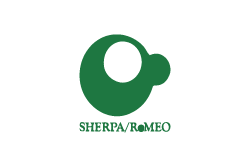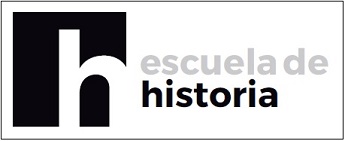El XXI Congreso Extraordinario del Partido Comunista de la Unión Soviética y su importancia histórica para la construcción de una nueva legitimidad política
DOI:
https://doi.org/10.35305/aeh.vi42.445Resumen
Tras la muerte de Stalin en 1953, la dirección colegiada que encabezó Khrushchev enfrentó la urgencia de forjar una nueva legitimidad. El XXI Congreso Extraordinario del PCUS formalizó las directrices con vistas a conducir la construcción de un nuevo horizonte de expectativas para el conjunto de la sociedad soviética. Pese a caer rápidamente en el olvido, esta instancia partidaria confirmó la reconfiguración del escenario político, transfiriendo la preeminencia del Politburó al Comité Central, y estableciendo el rumbo económico etapista que debía seguir la Unión Soviética para la construcción del comunismo. Mediante el abordaje de documentos partidarios y publicaciones periódicas soviéticas, este artículo analiza la forja de una nueva legitimidad por parte de la dirección soviética y demuestra que el congreso de 1959 cristalizó las premisas políticas lanzadas en el XX Congreso de 1956, al tiempo que anticipó las cuestiones ideológicas fundamentales que abordaría el XXII Congreso de 1961.Descargas
Citas
Brandenberger, D. y Zelenov, N. (Eds.) (2019). Stalin's Master Narrative. A Critical Edition of the History of the Communist Party of the Soviet Union. New Haven y London: Yale University Press. https://doi.org/10.12987/9780300159646
Clarke, S., Fairbrother, P., Burawoy, M. y Krotov, P. (1993). What About the Workers. London: Verso.
Cohen, S. (2012). The Victims Return: Survivors of the Gulag After Stalin. London: I. B. Tauris. https://doi.org/10.5040/9780755621194
Corvalán, L. (1993). El derrumbe del poder soviético. Santiago: Los Andes.
Deutscher, I. (1975). Ironías de la Historia. Barcelona: Península.
Deutscher, I. (1969). The Unfinished Revolution. Russia 1917-1967. New York: Oxford University Press.
Elie, M. (2013). “Khrushchev’s Gulag: The Soviet Penitentiary System alter Stalin’s Death, 1953-1964”. En Kozlov, D. y E. Gilburd, E. (Eds.): The Thaw, Soviet society and culture during the 1950s and 1960s (109-142). Toronto/Buffalo/London: University of Toronto Press. https://doi.org/10.3138/9781442661059-007
Elkner, J. (2009). “The changing face of repression”. En Ilic, M. y Smith, J. (Eds.): Soviet State and Society Under Nikita Khrushchev (pp. 142-161). New York: Routledge.
Fokin, A. A. (2017). “Kommunizm ne za gorami”. Obrazy budushchego u vlasti i naseleniia SSSR na rubezhe 1950-1960-x godov. Moskva: ROSSPEN.
Fitzpatrick, S. (2015). On Stalin’s Team. Princeton and Oxford: Princeton University Press. https://doi.org/10.2307/j.ctvc77n22.12
Fursenko, A. y Naftali, T. (2018). Kholodnaia voina Khrushcheva. Tainaia istoriia protivnika Ameriki (Istoriia Stalinizma). Moscú: Rosspen.
Furst, J. (2010). Stalin’s Last Generation. Post-War Youth and the Emergence of Mature Socialism. Oxford: Oxford University Press. https://doi.org/10.1093/acprof:oso/9780199575060.001.0001
Hardy, J. S. (2016). The Gulag after Stalin. Redefining Punishment in Khrushchev’s Soviet Union, 1953-1964. Ithaca: Cornell University Press. https://doi.org/10.7591/9781501706042
Hornsby, R. (2013). Protest, Reform and Repression in Khrushchev’s Soviet Union. New York: Cambridge University Press. https://doi.org/10.1017/CBO9781139380867
Jones, P. (2013). Myth, Memory, Trauma. Rethinking the Stalinist past in the Soviet Union, 1953-70. New Haven and London: Yale University Press. https://doi.org/10.12987/yale/9780300185126.001.0001
Jones, P. (2006). “From the Secret Speech to the burial of Stalin: real and ideal responses to De-Stalinization”. En Jones, P. (Ed.): The Dilemmas of Destalinisation A Social and Cultural History of Reform in the Khrushchev Era (41-63). Londres: Routledge.
Kalb, M. (2017). The Year I Was Peter the Great. 1956-Khrushchev, Stalin’s Ghost, and a Young American in Russia. Washington, D.C.: Brookings Institution Press.
Khlevniuk, O. V. (2009). Regional’naia politika N. S. Khrushcheva. TsK KPSS i mestnye partiinye komitety. 1953-1964 gg. (Dokumenty sovetskoi istorii). Moscú: ROSSPEN.
Kibita, N. (2013). Soviet economic management under Khrushchev. The Sovnarkhoz reform. London: Routledge. https://doi.org/10.4324/9780203503195
Kolakowski, L. (1983). Las Principales Corrientes del Marxismo. III. La crisis. Madrid: Alianza.
Kozlov, D. (2013). The Readers of Novyi Mir. Coming to terms with the Stalinist past. Cambridge/Massachusetts/London: Harvard University Press. https://doi.org/10.4159/harvard.9780674075061
Kozlov, D. y Gilburd, E. (2013). “The Thaw was an Event in Russian History”. En Kozlov, D. y Gilburd, E. (Eds.): The Thaw. Soviet society and culture during the 1950s and 1960s (pp. 18-81). Toronto/Buffalo/London: University of Toronto Press. https://doi.org/10.3138/9781442661059-005
Kozlov, V. (2009). Massovye besporiadki v SSSR pri Khrushcheve I Brezhneve (1953- nachalo 1980-x gg.). Moskva: ROSSPEN.
Kozlov, V. (2011). “The Meaning of Sedition”. En Kozlov, V., Fitzpatrick, S. y Mironenko, S. (Eds.): Sedition. Everyday Resistance in the Soviet Union under Khrushchev and Brezhnev (pp. 25-64). New Haven and London: Yale University.
McCauley, M. (1987). “Khrushchev as Leader”. En McCauley, M. (Ed.): Khrushchev and Khrushchevism (pp. 9-29). London: Palgrave Macmillan. https://doi.org/10.1007/978-1-349-18646-4_2
McCauley, M. (1976). Khrushchev and the development of Soviet agriculture. The Virgin Land Programme 1953-1964. London: Palgrave Macmillan. https://doi.org/10.1007/978-1-349-03059-0
Medvedev, R. (1986). Khrushchev. Politicheskaia biografiia. Benson: Chalidze Publications.
Mlechin, L. (2021). Nikita Khrushchev. Moscú: Molodaia Gvardiia.
Nekrasov, V. (2019). “Dilemma Khrushcheva”: Reformy Gosplana SSSR, neftekhimicheskii proekt i vyzovy kholodnoi voiny (Vtoraia polovina 1950-kh – Pervaia polovina 1960-kh gg.). Moscú: Institut Vseobshchei Istorii RAN.
Pashin, V. P. et. al. (2012). Ekonomicheskaia prestupnost’ v SSSR ot Khrushcheva do Gorbacheva, Kursk, Iugo-Zapadnyi Gosudarstvennyi Universitet.
Pedosov, A. (Dir.) (1980). Istoriia Kommunisticheskoi Partii Sovetskogo Soiuza, T. 5, vol. 2. Moscú: Izdatel’stvo Politicheskoi Literatury.
Rajak, S. (2011). Yugoslavia and the Soviet Union in the Early Cold War. Reconciliation, Comradeship, Confrontation, 1953-1957. New York: Routledge. https://doi.org/10.4324/9780203842416
Rindlisbacher, S. (2017). “The Echoes of the Echoes. Reflecting the International Commemoration of the October Revolution in the Newspaper Pravda, 1918-91”. En Fayet, J.-F., Gorin, V. y Prezioso, S. (Ed.): Echoes of October. International Commemorations of the Bolshevik Revolution 1918-1990 (pp. 177-195). London: Lawrence & Wishart.
Roucek, J. S. (1972). “Examen «post-mortem» de Khrushchev”. Revista de Estudios Políticos 182, 217-232.
Sánchez-Sibony, O. (2014). Red Globalization. The Political Economy of the Soviet Cold War from Stalin to Khrushchev. New York: Cambridge University of Cambridge. https://doi.org/10.1017/CBO9781139628778
Schattenberg, S. y Heath, J. (2022). Brezhnev. The Making of a Statesman. Londres: I.B.Tauris. https://doi.org/10.5040/9780755642120
Schwartz, L. H. (2009). Political Warfare against the Kremlin. US and British Propaganda Policy at the Beginning of the Cold War. New York: Palgrave Macmillan. https://doi.org/10.1057/9780230236936
Sherry, S. (2015). Discourses of regulation and resistance. Censoring translation in the Stalin and Khrushchev era Soviet Union. Edinburgh University Press. https://doi.org/10.1515/9780748698035
Suny, R. G. (1988). The Soviet Experiment. Russia, the USSR and the Succesor States. New York and Oxford: Oxford University Press.
Titov, A. (2009). “The 1961 Party Programme”. En Ilic, M. y Smith, J. (Eds.): Soviet State and Society Under Nikita Khrushchev (pp. 8-25). New York: Routledge.
Traverso, E. (2009). A sangre y fuego. De la guerra civil europea, 1914-1945. Buenos Aires: Prometeo.
Tromly, B. (2014). Making the Soviet Intelligentsia. Universities and Intellectual Life under Stalin and Khrushchev. Cambridge: Cambridge University Press. https://doi.org/10.1017/CBO9781139381239
Troyanovsky, O. (2000). “The Making of Soviet Foreign Policy”. En: Taubman, W., Khrushchev, S. y Gleason, A. (Eds.): Nikita Khrushchev (pp. 209-241). New Haven and London: Yale University Press. https://doi.org/10.12987/yale/9780300076356.003.0010
Varga-Harris, C. (2015). Stories of House and Home. Soviet Apartment Life during the Khrushchev Years. Ithaca: Cornell University Press. https://doi.org/10.7591/cornell/9780801453076.001.0001
Vigor, P. H. (2021). The Soviet View of War, Peace and Neutrality. New York: Routledge. https://doi.org/10.4324/9781003096153
Volin, L. (1967). “Khrushchev and the Soviet Agricultural Scene”. En Karcz, J. (Ed.): Soviet and East European Agriculture. Berkeley: University of California Press. https://doi.org/10.1525/9780520314801-003
Wojdon, J. (2021). Communist Propaganda at School. The World of the Reading Primers from the Soviet Bloc, 1949–1989. London and New York: Routledge. https://doi.org/10.4324/9781003155959
Zubok, V. (2009). Zhivago’s Children. The last Russian intelligentsia. Massachusetts: Harvard. https://doi.org/10.2307/j.ctvjghw1d
Publicado
Cómo citar
Número
Sección
Licencia

Esta obra está bajo una licencia internacional Creative Commons Atribución-NoComercial-CompartirIgual 4.0.
Los autores que publican en esta revista están de acuerdo con los siguientes términos:
Al momento de enviar sus contribuciones, los colaboradores deberán autorizar su publicación conservando los derechos de autoría, y transfiriendo a la revista todos los derechos protegidos por las leyes de propiedad intelectual que rigen en Argentina, que implican la edición para difundir la obra en soporte digital en que se aloja la revista. Deberán declarar que poseen el permiso del archivo o repositorio donde se obtuvieron los documentos que se anexan al trabajo, cualquiera sea su formato (manuscritos inéditos, imágenes, archivos audiovisuales, etc.), permiso que los autoriza a publicarlos y reproducirlos, liberando a la revista y sus editores de toda responsabilidad o reclamo de terceros.
Asimismo, los autores deben adherir a la licencia Creative Commons denominada “Reconocimiento - No Comercial- Compartir Igual CC BY-NC-SA”, mediante la cual el autor permite copiar, reproducir, distribuir, comunicar públicamente la obra y generar obras derivadas, siempre y cuando se cite y reconozca al autor original. No se permite, sin embargo, utilizar la obra con fines comerciales. Los autores podrán establecer acuerdos adicionales para la distribución no exclusiva de la versión de la obra publicada en la revista (por ejemplo, situarlo en un repositorio institucional o publicarlo en un libro), con el reconocimiento de haber sido publicado primero en esta revista.



.png)







1.jpg)
.png)













.svg_1.png)




1.png)
